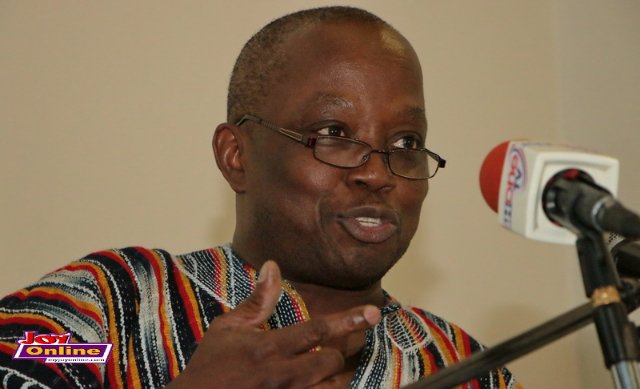Former Auditor-General Daniel Yaw Domelevo has stressed the need to empower public auditing institutions in order to address fiscal irresponsibility within ministries, departments, and agencies (MDAs).
Speaking at the launch of the 2024 Fiscal Recklessness Index report by IMANI Africa and Oxfam Ghana, Domelevo argued that creating an Independent Fiscal Council without first strengthening the current institutions would only increase the financial strain on the state.
The report identified the Ministry of Finance as the most fiscally reckless institution.
Domelevo took the opportunity to stress the importance of enhancing the capacity of oversight bodies such as the Public Accounts Committee and the Internal Audit Agency, in order to promote stronger financial accountability and governance within public institutions.
“The tendency in Ghana is to establish new state institutions that ultimately become a burden on public funds. When they fail to perform, we create yet another one.
“In my view, we should strengthen the Attorney General, the Auditor General, the Director-General of the Internal Audit Agency, and the Public Accounts Committee,” Mr. Domelevo stated.
Meanwhile, the Finance Minister Dr. Mohammed Amin Adam, has announced the government’s intention to set up an independent fiscal council as part of broader efforts to ensure that Ghana does not borrow beyond its financial capabilities.
This critical move is seen as a significant step towards reinforcing fiscal responsibility and stabilising Ghana’s economic outlook in the wake of its domestic debt crisis.
In a side interview at the 2024 Annual Meetings of the International Monetary Fund (IMF) and the World Bank Group held on Wednesday, October 23, Dr Amin Adam disclosed the government’s plans, emphasising the importance of this initiative in maintaining sustainable debt levels and avoiding a repeat of Ghana’s recent debt struggles.
He explained that, the proposed fiscal council would be an autonomous body tasked with monitoring the government’s borrowing practices and enforcing adherence to newly established debt limits.
According to the Finance Minister, the fiscal council is envisioned as an independent institution that will operate outside of the government’s direct control.
He indicated that the fiscal council’s primary function will be to ensure that the government complies with the fiscal rules, especially in relation to borrowing and debt repayment.
“The domestic debt we did was a very painful exercise because people did not expect that. So to have taken the people of Ghana through this painful exercise has meant that they had to sacrifice beyond what many people could do. And because of that, they are demanding fiscal discipline, they are demanding fiscal stability, and that is why it will be very difficult to go back to the era of unsustainable debt.
“The second measure we are putting in place is the implementation of far-reaching structural reforms, you know, to build our resilience. And one of the structural reforms relates to the existing fiscal responsibility legislation to impose debt limits on ourselves.
“And we are also putting in place a fiscal council that will ensure compliance with the fiscal rules. The fiscal council is supposed to be an independent council which will, outside the government, monitor our progress in terms of debt management in terms of how much we borrow, and how we repay, to ensure that we do not go beyond the limit that we are imposing on ourselves.”
ALSO READ:


